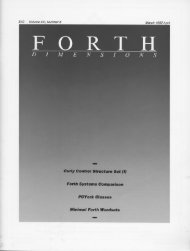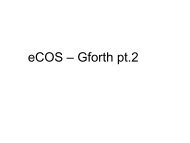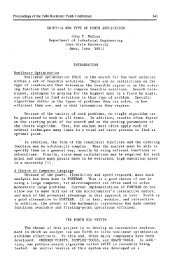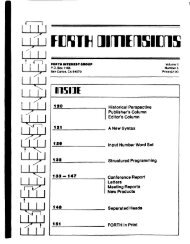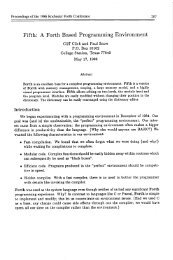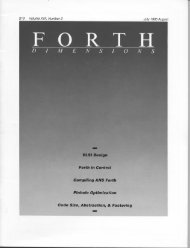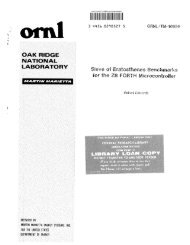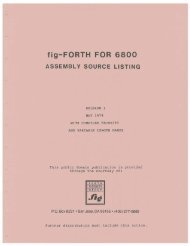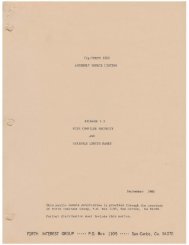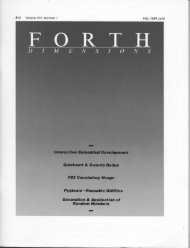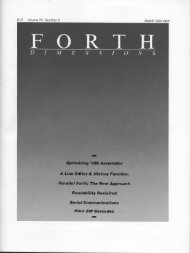5 - Forth Interest Group
5 - Forth Interest Group
5 - Forth Interest Group
Create successful ePaper yourself
Turn your PDF publications into a flip-book with our unique Google optimized e-Paper software.
pemtely to understand what<br />
on earth you do mean in<br />
invoking "traditional <strong>Forth</strong>,"<br />
as you keep doing.<br />
"I use '<strong>Forth</strong>' to refer to<br />
the language as descriid<br />
in the books ated most<br />
often as references:<br />
Starting <strong>Forth</strong> and<br />
7binking Fotth by Leo<br />
Brodie, and <strong>Forth</strong>: A T&<br />
and R efae by Kelly<br />
and Spies."<br />
At last., a workable & f~-<br />
tion! However, these fine<br />
books all make it very dear<br />
that, although they discuss<br />
such things as dictionary<br />
structure for pedagogic pur-<br />
poses, implementations do<br />
vary. Primarily, they define<br />
<strong>Forth</strong> behaviorally, just as<br />
ANS <strong>Forth</strong> does. I quote from<br />
Kelly & Spies (pg. 30%):<br />
"The <strong>Forth</strong> standards<br />
wisely make no attempt<br />
to define how the lan-<br />
guage works internally.<br />
The point of the stan-<br />
dards is to promote a<br />
fundional compatibility of<br />
programs, not to stifle<br />
original ways of adapting<br />
<strong>Forth</strong> to new hardware."<br />
Couldn't have said it bet-<br />
ter myself.<br />
I "Several of the languages<br />
I have used ... are de-<br />
scribed as 'functional'<br />
languages.. . Eachof these<br />
languages is desaibed in<br />
terms of a set of opera-<br />
tors. In each case, how-<br />
ever, the operators act on<br />
a specific data type or<br />
types. . . It is meaningless<br />
to have operators that do<br />
not operate on anything!<br />
"The ANSI Team has ap parently not only invented<br />
a new language, but also<br />
a new concept in com-<br />
figure S&, continued.)<br />
: @@ \ ( 'body -- x y )<br />
dup >r x y r y



